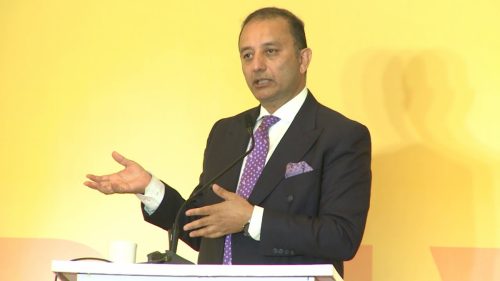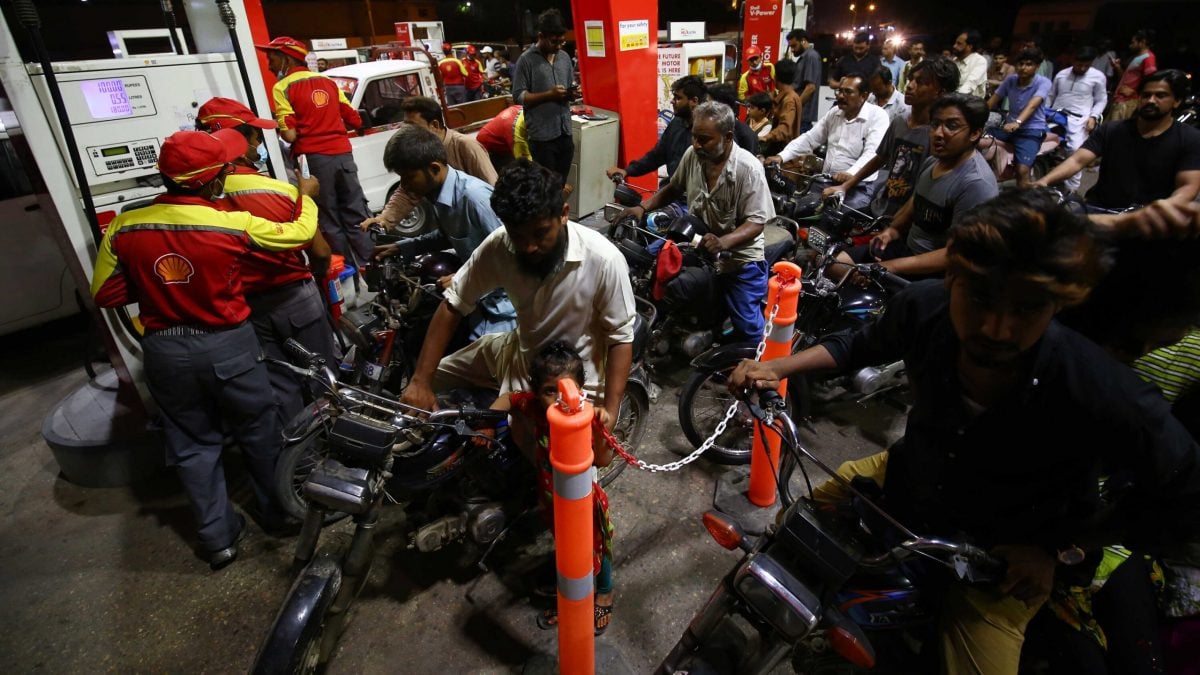The International Monetary Fund is awaiting the new fuel pricing plan in Pakistan; As a prelude to signing a prospective loan agreement that may help the crisis-hit country solve part of its deteriorating monetary problems.
Fund officials said that signing the agreement is contingent on settling some remaining conditions with the Pakistani government. Including the proposed plan to increase fuel prices, according to Reuters.
Pakistan has been negotiating with the International Monetary Fund, since the beginning of February 2023; to obtain a new $1.1 billion loan to help her alleviate the financial hardship she has been going through for years.
Excess of the rich
Last week, Pakistani Prime Minister Shehbaz Sharif announced a plan to increase fuel tariffs for wealthy consumers as part of other measures aimed at raising taxes on the country’s wealthy segments.
The government aims to use the proceeds of these fees to subsidize fuel prices for the poor and low-income people, who were severely affected by the fierce inflationary wave during the past year until the first months of 2023.
The inflation rate in Pakistan recorded its highest level in 50 years during February 2023; This was reflected in the prices of food, housing, clothing and the necessities of life at the level of all regions and states of Pakistan, according to what was monitored by the specialized energy platform.
Pakistan suffers from a severe shortage of fuel supplies. The availability of it is not enough to meet the needs of domestic consumption for more than 30 days, according to Pakistan’s Oil Minister Mossadeq Malik.
$1.3 billion a month
Pakistan imports 70% of its gasoline needs from abroad, and it also imports about 60% of its diesel needs, but it suffers from an acute shortage of foreign exchange reserves that restricts it from importing more, in light of the high global oil and gas prices.
The country needs 30,000 metric tons of gasoline, 200,000 metric tons of diesel, and 650,000 metric tons of crude oil, at a monthly cost of $1.3 billion per month, according to the specialized energy platform.
Pakistan currently imposes a general consumption tax on fuel of 50 rupees ($0.18) per liter of petrol and 32.5 rupees per liter of diesel, but it is considering increasing petrol prices for the rich – for now -.
(Pakistani Rupee = 0.0035 USD)

Pakistan fuel pricing scheme
The Pakistani government is proposing a plan to raise the price of certain types of petrol consumed by the rich by 100 rupees per liter over those paid by the poor, as promoted by the Pakistani Oil Ministry.
This proposed plan requires the approval of the International Monetary Fund as part of the terms of negotiation of the new loan, which amounts to $1.1 billion. This is likely to be modified in one way or another in the coming weeks.
Esther Perez Ruiz, resident representative of the International Monetary Fund in Pakistan, says the government has not yet consulted the Fund about its new proposal to increase fuel prices.
6 weeks ahead
While Pakistani Oil Minister Mossadeq Malik says the government gave his ministry 6 weeks time to finalize the pricing plan; This makes it likely that he will contact and consult the fund in the coming weeks.
The minister strongly defends the proposal to increase fuel prices for the rich, and promotes its expected positive effects in providing relief and assistance to the poor in his country who suffer from record inflation rates that exceed their purchasing power.
The International Monetary Fund is preparing to sign the loan agreement at the level of technical experts once the few remaining points are settled with the government, including the proposal to increase fuel prices, according to the fund representative, who asked for more details about how the government proposal will be implemented and guarantees that it will not be misused.
The Pakistani Ministry of Oil or the Ministry of Finance did not respond to requests for comment regarding the fuel pricing proposal in Pakistan, and its relationship to loan negotiations and terms so far, according to the specialized energy platform.
Only 4 weeks reserve
Pakistan desperately needs the IMF loan, as its cash reserves are not enough to cover the necessary import bill for more than 4 weeks; This puts the Pakistani government in a critical position, as it is exposed to accusations of attempting to persecute and assassinate former Prime Minister Imran Khan, who enjoys great popularity in the country.
The negotiation with the International Monetary Fund on the prospective $1.1 billion loan comes within the framework of a larger bailout plan signed with the fund in 2019 worth $6.5 billion, according to the specialized energy platform.
The Pakistani government implemented several financial measures within the framework of the preconditions for negotiating with the fund, including devaluing the rupee against the dollar, reducing subsidy programs, and increasing energy prices.
Pakistani Finance Minister Ishaq Dar expects to sign the loan agreement with the International Monetary Fund soon, according to what was monitored by the specialized energy platform.
related topics..
Also read..

Leave a Reply